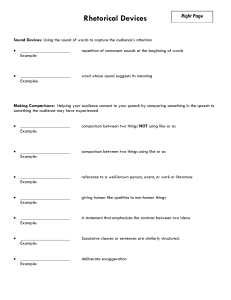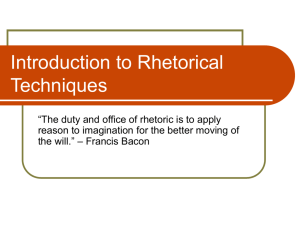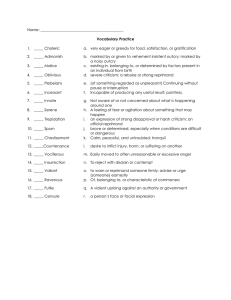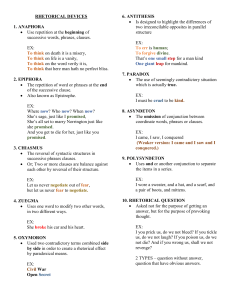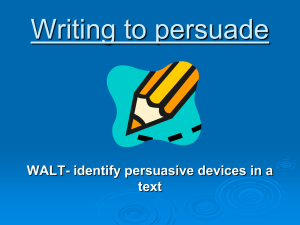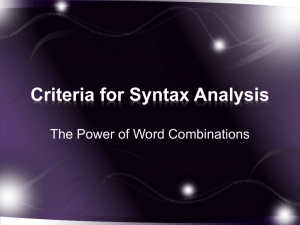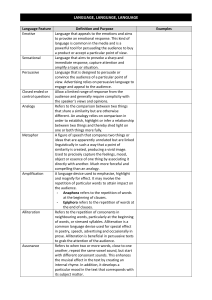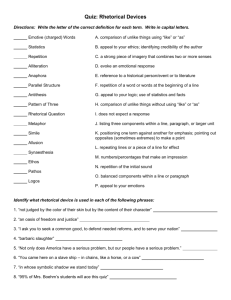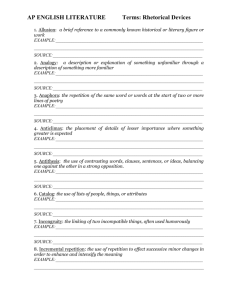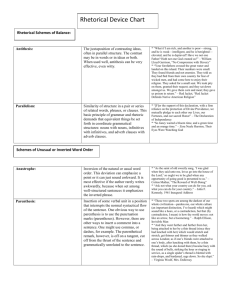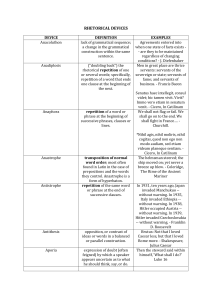Elements of Style Workshop --Rhetorical Devices--
advertisement
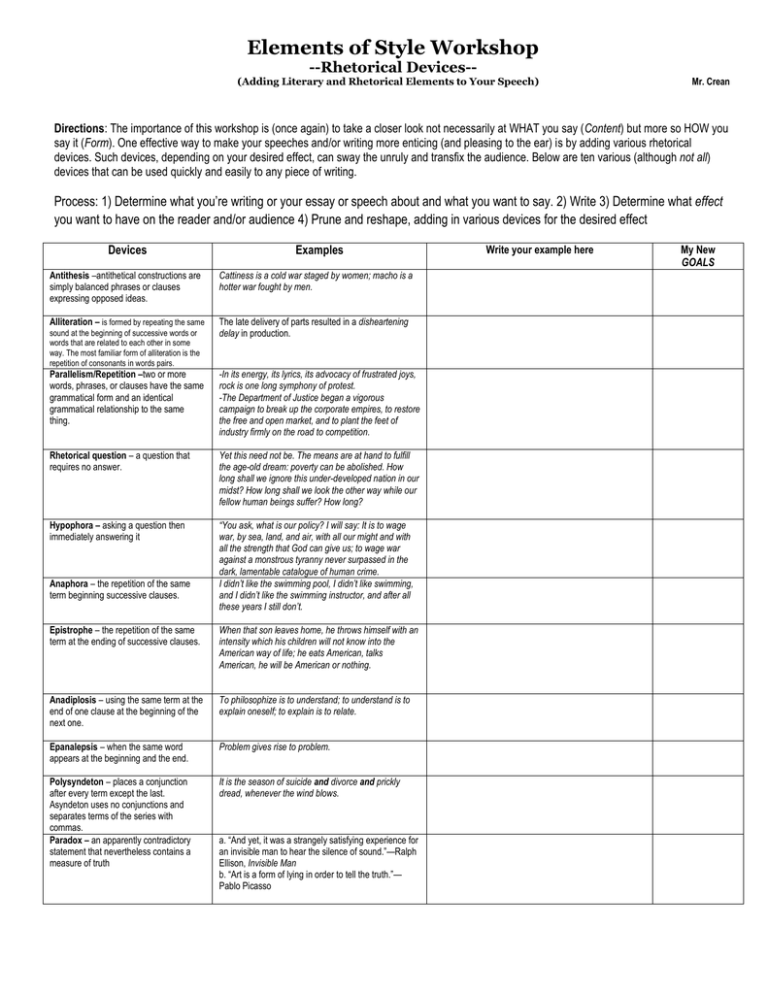
Elements of Style Workshop --Rhetorical Devices-(Adding Literary and Rhetorical Elements to Your Speech) Mr. Crean Directions: The importance of this workshop is (once again) to take a closer look not necessarily at WHAT you say (Content) but more so HOW you say it (Form). One effective way to make your speeches and/or writing more enticing (and pleasing to the ear) is by adding various rhetorical devices. Such devices, depending on your desired effect, can sway the unruly and transfix the audience. Below are ten various (although not all) devices that can be used quickly and easily to any piece of writing. Process: 1) Determine what you’re writing or your essay or speech about and what you want to say. 2) Write 3) Determine what effect you want to have on the reader and/or audience 4) Prune and reshape, adding in various devices for the desired effect Devices Examples Antithesis –antithetical constructions are simply balanced phrases or clauses expressing opposed ideas. Cattiness is a cold war staged by women; macho is a hotter war fought by men. Alliteration – is formed by repeating the same The late delivery of parts resulted in a disheartening delay in production. sound at the beginning of successive words or words that are related to each other in some way. The most familiar form of alliteration is the repetition of consonants in words pairs. Parallelism/Repetition –two or more words, phrases, or clauses have the same grammatical form and an identical grammatical relationship to the same thing. -In its energy, its lyrics, its advocacy of frustrated joys, rock is one long symphony of protest. -The Department of Justice began a vigorous campaign to break up the corporate empires, to restore the free and open market, and to plant the feet of industry firmly on the road to competition. Rhetorical question – a question that requires no answer. Yet this need not be. The means are at hand to fulfill the age-old dream: poverty can be abolished. How long shall we ignore this under-developed nation in our midst? How long shall we look the other way while our fellow human beings suffer? How long? Hypophora – asking a question then immediately answering it “You ask, what is our policy? I will say: It is to wage war, by sea, land, and air, with all our might and with all the strength that God can give us; to wage war against a monstrous tyranny never surpassed in the dark, lamentable catalogue of human crime. I didn’t like the swimming pool, I didn’t like swimming, and I didn’t like the swimming instructor, and after all these years I still don’t. Anaphora – the repetition of the same term beginning successive clauses. Epistrophe – the repetition of the same term at the ending of successive clauses. When that son leaves home, he throws himself with an intensity which his children will not know into the American way of life; he eats American, talks American, he will be American or nothing. Anadiplosis – using the same term at the end of one clause at the beginning of the next one. To philosophize is to understand; to understand is to explain oneself; to explain is to relate. Epanalepsis – when the same word appears at the beginning and the end. Problem gives rise to problem. Polysyndeton – places a conjunction after every term except the last. Asyndeton uses no conjunctions and separates terms of the series with commas. Paradox – an apparently contradictory statement that nevertheless contains a measure of truth It is the season of suicide and divorce and prickly dread, whenever the wind blows. a. “And yet, it was a strangely satisfying experience for an invisible man to hear the silence of sound.”—Ralph Ellison, Invisible Man b. “Art is a form of lying in order to tell the truth.”— Pablo Picasso Write your example here My New GOALS
